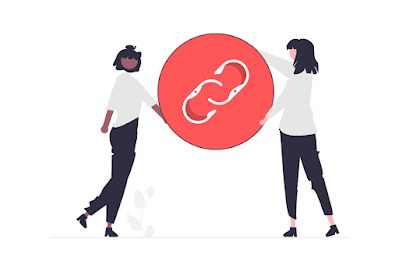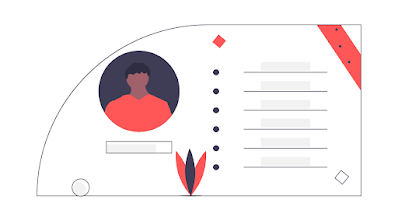Internal linking is an often-overlooked aspect of SEO, but it's a powerful tool that can help you improve your website's organic traffic and rankings. It can help visitors navigate your site more easily and keep them more engaged.
Why search engines love internal linking?
* Helps crawlers and users navigate your website
* Aids in indexing of your content
* Can help pass link juice (PageRank) around your website
Why search engines love internal linking?
* Helps crawlers and users navigate your website
* Aids in indexing of your content
* Can help pass link juice (PageRank) around your website
* Can help you target specific keywords with greater accuracy
So here we're sharing 7 internal linking tips for you.
1. Finding related pages on your website: One of the best ways to find related pages on your website is by using the site: operator in Google. For example, if you wanted to find all the pages on our website that are about SEO, you could type in site:www.itzo.me SEO
This will return all the pages on our website that are indexed by Google that include the term "SEO."
2. Anchor text: When creating internal links, be sure to use anchor text that accurately describes the page you're linking to. This will help Google better understand the content of your pages.
3. Utilize breadcrumbs: Breadcrumbs are a great way to help users and crawlers navigate your website. They also help to indicate to Google which pages are the most important on your website.
4. Use HTML5: HTML5 provides a number of features that make it easy to create internal links, including the ability to create custom anchors and specify target attributes.
5. Use subdomains: If you have a lot of content on a particular topic, it can be helpful to break it up into multiple subdomains. This makes it easier for Google to index your content and helps to target specific keywords more accurately.
6. Use canonical URLs: If you have multiple pages that are essentially the same, you can use canonical URLs to tell Google which page is the original and which are duplicates.
7. Use 301 redirects: If you decide to move a page on your website, be sure to use a 301 redirect to point the old page to the new page. This will help to keep any link juice (PageRank) that the old page had transferred to the new page.
By following these simple techniques, you can improve your website's internal linking structure and help your pages rank higher in Google search results.
Hope you find this of great use, and if you're looking for more SEO and digital marketing tips you're ONE CLICK away.
1. Finding related pages on your website: One of the best ways to find related pages on your website is by using the site: operator in Google. For example, if you wanted to find all the pages on our website that are about SEO, you could type in site:www.itzo.me SEO
This will return all the pages on our website that are indexed by Google that include the term "SEO."
2. Anchor text: When creating internal links, be sure to use anchor text that accurately describes the page you're linking to. This will help Google better understand the content of your pages.
3. Utilize breadcrumbs: Breadcrumbs are a great way to help users and crawlers navigate your website. They also help to indicate to Google which pages are the most important on your website.
4. Use HTML5: HTML5 provides a number of features that make it easy to create internal links, including the ability to create custom anchors and specify target attributes.
5. Use subdomains: If you have a lot of content on a particular topic, it can be helpful to break it up into multiple subdomains. This makes it easier for Google to index your content and helps to target specific keywords more accurately.
6. Use canonical URLs: If you have multiple pages that are essentially the same, you can use canonical URLs to tell Google which page is the original and which are duplicates.
7. Use 301 redirects: If you decide to move a page on your website, be sure to use a 301 redirect to point the old page to the new page. This will help to keep any link juice (PageRank) that the old page had transferred to the new page.
By following these simple techniques, you can improve your website's internal linking structure and help your pages rank higher in Google search results.
Hope you find this of great use, and if you're looking for more SEO and digital marketing tips you're ONE CLICK away.







